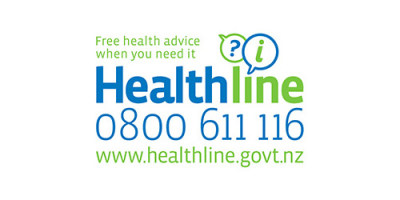Advance Care Planning
Advance care planning (ACP) gives everyone a chance to say what treatment they would and would not want, particularly for future and end of life care.

An advance care plan tells a person’s healthcare team and their loved ones about the treatment and care they want, or don’t want, if they can no longer make decisions for themselves.
Advance care planning can be done a step at a time at your own pace. The important steps are thinking about and talking about your wishes, writing them down and sharing them.
Having your wishes in writing helps the important people in your life, and your healthcare team, if they have to make a decision on your behalf.
Advance care planning conversations are for everyone. All competent adults are encouraged to create their own ACP.
Advance care planning helps people take control of their own healthcare.
ACPs are shared with a person’s GP, healthcare team and loved ones. It may be stored electronically, and accessible to members of your healthcare team. Once completed an ACP can be reviewed and changed at any time; reviewing a plan on a regular basis is encouraged.
Click here do your Advance Care Plan online
Click here to find more information on Advance Care Planning
An Advance Care Plan: a valuable tool for families - Julian's story
While an Advanced Care Plan (ACP) is a helpful guide for health care teams to know what their patients wants in terms of treatment choices, beliefs, and what’s important to

Julian Clothier with his wife Lois
them – it’s also a valuable tool for families. Planning for end-of-life care not only ensures all family members are on the same page, but eliminates any uncertainty about making the right decision on behalf of a loved one who is unable to speak for themselves.
Caring for a family member or loved one in their last days, weeks or years of life can be an incredibly challenging time. Christchurch man Julian Clothier knows this all too well.
He was the primary carer for his wife’s ex-husband Peter, who moved in with the couple when he became too sick to look after himself.
“It was a challenging 24/7 job, but for me, it was a huge privilege to be trusted with his care,” says Julian. “I learnt a huge amount about caring for someone who is dying and even more about myself.”
Although Peter had been assessed to enter an aged residential care facility, his wish was to pass away at home surrounded by family, so Julian and his wife Lois chose to care for him themselves.
Lois, a registered nurse at Canterbury DHB, supported Julian with Peter when she wasn’t working.
“That’s how I ended up becoming the primary carer,” says Julian, who had always had a good relationship with Peter.
As Peter had completed an ACP, Julian was able to follow it once Peter began experiencing delirium and was no longer lucid enough to make decisions. While all of Peter’s care needs were guided by the ACP, his wish to die at home was not possible after he had a fall and needed increased care, so he ended up passing away in hospice, age 72.
However, Peter was surrounded by his family when he passed, as he had wished.
“I promised Peter I would care for him and keep him safe on his final journey. The doctors had told us he didn’t have long to live, but he got a couple of years with us before he died in hospice – which was more than expected.”
Although Julian had support from Lois as well as visits and advice from The Princess Margaret Hospital and Nurse Maude Hospice aged care teams, he still had moments of uncertainty about whether he was doing a good enough job.
During one of many particularly challenging times, Peter had a visit from palliative medicine physician Dr Amanda Landers. Julian was so impressed by Dr Landers and the way she interacted with Peter that he came across a video she had created, called What happens to the dying body.
“The video is amazing – it’s simple, easy to understand and so informative, describing in chronological detail exactly what happens to the dying body, what symptoms the person will have and how it will affect them. Being able to recognise what stages Peter was going through was really reassuring, as it enabled me to know exactly what was happening and why.”
The video, along with support from professionals and guidance from the ACP that Peter had written, was immensely helpful in getting through the last few months of Peter’s life, Julian says. The ACP also meant Peter’s children, who had been involved when he originally completed it, knew what was happening and why.
Julian helped with the plan to the point of getting the right people involved, then withdrew to ensure integrity of the process and the contents.
“We believe an ACP is the most valuable document and guidance for all concerned in the end-of-life process, and we would encourage people to have one in place and talk about it with their loved ones.”
Page last updated: 31/03/2023





